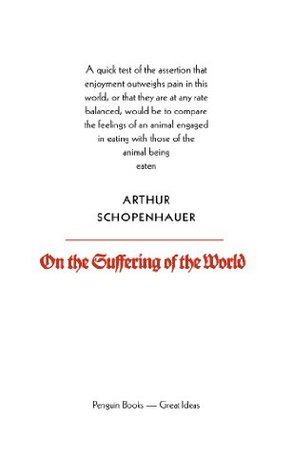More on this book
Kindle Notes & Highlights
Read between
September 3 - September 23, 2021
A truth that has merely been learnt adheres to us only as an artificial limb, a false tooth, a wax nose does, or at most like transplanted skin; but a truth won by thinking for ourself is like a natural limb: it alone really belongs to us. This is what determines the difference between a thinker and a mere scholar.
The two main requirements for philosophizing are: firstly, to have the courage not to keep any question back; and secondly, to attain a clear consciousness of anything that goes without saying so as to comprehend it as a problem. Finally, the mind must, if it is really to philosophize, also be truly disengaged: it must prosecute no particular goal or aim, and thus be free from the enticement of will, but devote itself undividedly to the instruction which the perceptible world and its own consciousness imparts to it.
The poet can thus be compared with one who presents flowers, the philosopher with one who presents their essence.
Indeed, most people have – in their hearts even if not consciously – as the supreme guide and maxim of their conduct the resolve to get by with the least possible expenditure of thought, because to them thinking is hard and burdensome. Consequently, they think only as much as their trade or business makes absolutely necessary, and then again as much as is demanded by their various pastimes – which is what their conversation is just as much as their play; but both must be so ordered that they can be tackled with a minimum of thought.
For intellect is fundamentally a hard-working factory-hand whom his demanding master, the will, keeps busy from morn to night. But if this hard-driven serf should once happen to do some of his work voluntarily during his free time, on his own initiative and without any object but the work itself, simply for his own satisfaction and enjoyment – then this is a genuine work of art, indeed, if pushed to an extreme, a work of genius.
A multitude of bad writers lives exclusively on the stupid desire of the public to read nothing but what has just been printed: the journalists. Well named! In English the word means ‘day-labourers’.
A book can never be more than a reproduction of the thoughts of its author. The value of these thoughts lies either in the material, that is in what he has thought upon, or in the form, i.e. the way in which the material is treated, that is in what he has thought upon it.
The actual life of a thought lasts only until it reaches the point of speech: there it petrifies and is henceforth dead but indestructible, like the petrified plants and animals of prehistory. As soon as our thinking has found words it ceases to be sincere or at bottom serious. When it begins to exist for others it ceases to live in us, just as the child severs itself from its mother when it enters into its own existence.


